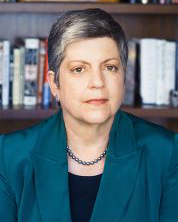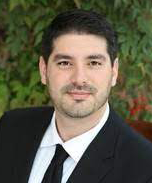 Peter de Vries (University of Twente)
Peter de Vries (University of Twente)
Peter de Vries is assistant professor at the department of Psychology of Conflict, Risk, & Safety. His past research includes automaticity in traffic mode choice, its effects on the execution of behavioural intentions in the context of light regulation, the effect of interactive feedback in household appliances on energy saving, and the effect of trust on technology use.
 Dr. Christian Eschmann (German Aerospace Center (DLR))
Dr. Christian Eschmann (German Aerospace Center (DLR))
Dr.-Ing. Christian Eschmann is since October 2018 the coordinator for the strategic topic of unmanned aircraft systems (UAS) at the German Aerospace Center (DLR) – the national aeronautics and space research centre of the Federal Republic of Germany. As the Coordinator UAS, he is the first point of contact for all activities regarding unmanned flight at DLR as well as for governmental ministries and agencies, research bodies, and the industry. In addition, Christian is the DLR Liaison Officer to the European Union Aviation Safety Agency (EASA) and currently the acting director of DLR’s new Small Aircraft Technology research facility.
Previously, Christian worked as Head of Department for RWTH Aachen University and as a researcher at the Fraunhofer-Gesellschaft. He holds a Ph.D. and a M.Sc. in Aerospace Engineering, both from RWTH and with the focus on unmanned aircraft systems.
Christian leads the European ‘Urban Air Mobility’ thematic programme within the Future Sky initiative of the Association of European Research Establishments in Aeronautics (EREA), chairs the international ‘Urban Air Mobility’ working group of the International Forum for Aviation Research (IFAR) as the world´s aviation research establishment network, and he is a member of the steering committee of the German Unmanned Aviation Association (VUL).
 Janet Napolitano (former UC President, former Secretary of Homeland Security, and Professor of Public Policy at UC Berkeley)
Janet Napolitano (former UC President, former Secretary of Homeland Security, and Professor of Public Policy at UC Berkeley)
Janet Napolitano is a Professor of Public Policy at the Goldman School of Public Policy at UC Berkeley. She served as the twentieth president of the University of California, the nation’s largest public research university with ten campuses, five medical centers, three affiliated national laboratories, and a statewide agriculture and natural resources program. Prior to joining the University of California, President Napolitano served as Secretary of Homeland Security from 2009 to 2013. She is a former two-term Governor of Arizona, a former Attorney General of Arizona, and a former US Attorney for the District of Arizona. In 2019, President Napolitano published How Safe Are We? Homeland Security Since 9/11. President Napolitano earned her BS degree, summa cum laude, in Political Science from Santa Clara University, and her JD from the University of Virginia. She is based in Berkeley, CA.
 Brandon Stark (UC Center of Excellence on Unmanned Aircraft System Safety)
Brandon Stark (UC Center of Excellence on Unmanned Aircraft System Safety)
Brandon Stark is the director and founder of the University of California’s Center of Excellence on Unmanned Aircraft System Safety, where he provides system-wide UAS expertise to all 10 of its campuses, cooperative extensions, research centers and the UC’s Natural Reserve System that totals over 750,000 acres across the state of California. Therapid growth of unmanned aircrafts has manifested across a multitude of domains, from engineering programs and education to facility management, campus promotion and student clubs, has necessitated the implementation of a UAS Safety Management System as an infrastructure to support and train UC staff, faculty and students for regulatory compliance, risk assessments and the safe operation of unmanned aircraft systems, while providing efficient centralized management and enabling innovative research and use. Brandon Stark is the chief policy writer for Unmanned Aircrafts for the UC system and campuses and architect for UC UAS training programs and fleet management. He is an expert on Unmanned Aircraft Systems technology, their use in research and commercial operations, UAS regulations and policy, specializing in higher education. In his role as director, he serves as an advisor for Enterprise Risk Management on UAS usage to the University of California Office of the President, and directs the UC’s advocacy on UAS legislation, both federally and locally.